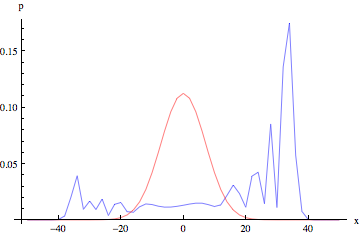Evolution picks up hitchhikers - 07/23/13 05:22 AM
We once had an interesting if somewhat heated discussion on the drivers of evolution going.
I was challenged me to make predictions if what I was suggesting as a idea was true
http://medicalxpress.com/news/2013-07-evolution-hitchhikers.html
Interesting observation from biological sciences.
Does not prove I am right and it's a long way from falsifying "survival of the fittest" theory but it is interesting.
What I really need to see is generations down the track those hitchhiker genes become crucial in a species to show a proper gene walk and then the biologists will start scratching their heads going how did it know? ... I will simply smile and laugh
I was challenged me to make predictions if what I was suggesting as a idea was true
http://medicalxpress.com/news/2013-07-evolution-hitchhikers.html
Interesting observation from biological sciences.
Does not prove I am right and it's a long way from falsifying "survival of the fittest" theory but it is interesting.
What I really need to see is generations down the track those hitchhiker genes become crucial in a species to show a proper gene walk and then the biologists will start scratching their heads going how did it know? ... I will simply smile and laugh
